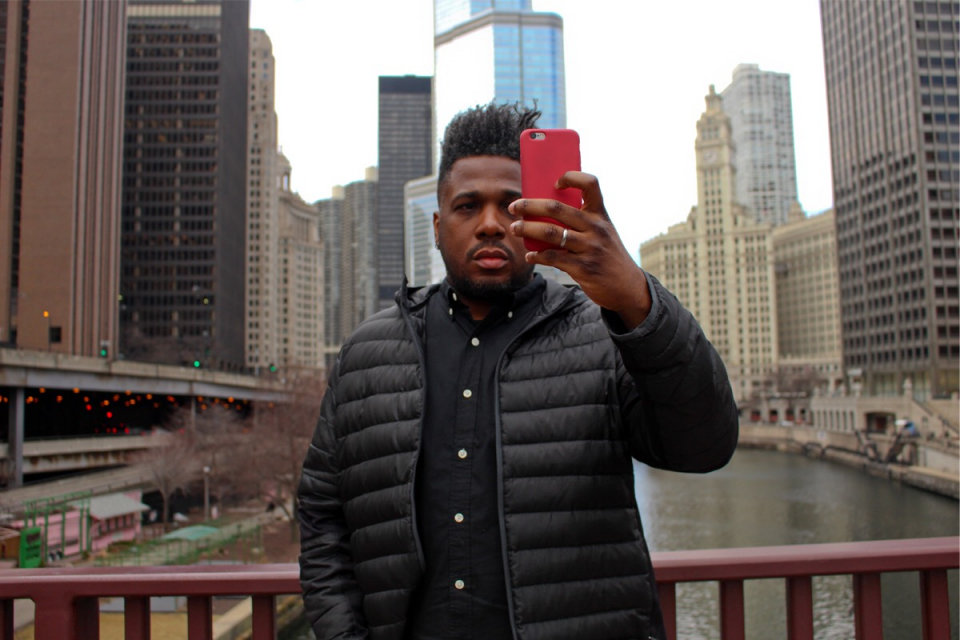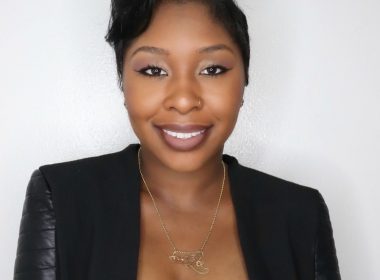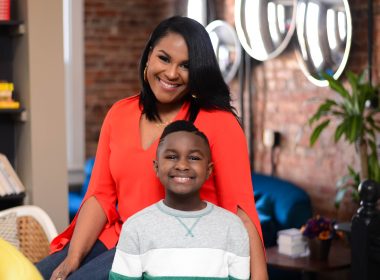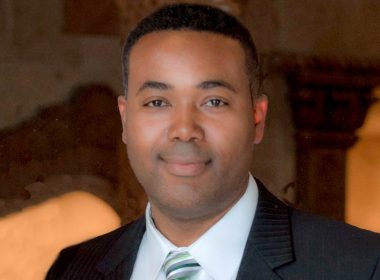
What may seem like mission impossible for one is mission clear for Chris Walker, founder of Urbanime and creator of Relic, a highly-anticipated, 45-page digital graphic novel, which will be released in February 2018.
“Our focus is to tell stories that take all aspects of hip-hop and culture and throw them into fantastic narratives,” he says about Urbanime’s content that is the confluence between hip-hop and comic books.
Relic brings to life a tale of two brothers who develop supernatural powers after discovering an ancient family heirloom, which leads to a battle of good versus evil against a mysterious talisman.
A “creativepreneur,” Walker talks about the field of publishing, the process to bring Relic to life and who he admires in the industry.
Why did you write this book?
We wanted to create a project that would launch our new digital graphic novel imprint Urbanime. Something that would captivate audiences and be a cool way to introduce ourselves to audiences.
For Relic itself, once we started delving into it, we discovered this epic fantasy story that is rooted in family about two brothers who have gone through a lot together and were at just the beginning of what was going to happen to their world.
Once we discovered their story, we had to tell it because it is something that would connect with everyone.
What’s the story behind the title?
Relics are artifacts from the past, so it’s a double entendre. The characters get powers from the relics around them but the story is also about leaving relics — ideas, thoughts, ways of being — in the past to define your own destiny.
What do you hope readers will glean from reading your book?
That family is important but so is self-identity and deciding what you want your destiny to be.
How long did it take you to write this book?
There was a lot of writing necessary to make Relic a reality. Relic is a fantasy story so the total process took about two years. Writing the graphic novel script was a year, on and off. However, to write the story of Bobby and Troy Gilbert, we also had to do world building and character development. We had to understand the fantasy world we were building, how the powers work in the story, and even the history of the fictional world inside of Relic.
What was your regimen to complete this book?
I developed the story with Nick Leslie and Allen Warner, my writing partners for the project. We would write sections at a time. Usually a week at a time, working scene by scene. We started with a basic story concept and then broke it down into an outline, then broke the outline into scenes.
How did you arrive at this career choice? Was it a deliberate decision or a gradual and natural evolution?
Gradual. I always loved writing. In college, I majored in painting but also took creative writing classes. It was in school that I discovered I’m a storyteller at heart. It’s guided me throughout my career.
What separates you from others in your field? What is unique about the experience that you create?
A wealth of experience. I’ve worked in creative fields as a designer, a comic book artist, an illustrator, a writer, and a director. What connects them all is being a storyteller.
My friend, David Atchison, always says I give big company pop to independent projects. According to David, I have the unique ability to give a niche or sub-culture project the same resonance as something coming from a major production, brand or studio.
For those considering entering this arena, what skill sets do you recommend mastering? What traits are most conducive to success?
Ideation. Learn how to think of a lot of ideas and not get too attached to any one idea. It doesn’t mean you don’t love those ideas, it just teaches you that you have the ability to come up with more ideas.
Human understanding. Be a student of people and their behavior. It will make you a better writer, artist and creator.
Time management and process. As much as I love being an artist and creative person, it’s intense and takes a lot out of you. Learning how to manage your time and develop your own creative process is a must to be successful at being a creative professional.
How do you stay at the leading edge of your craft?
Staying consistent in many ways. Staying hungry. Staying passionate. Staying inquisitive. You just have to stay at it.
Do you think that there are any widely held misconceptions about what you do? If so, what are they and how do you work to dispel them?
As comics become a mainstay of the larger pop culture scene (movies, music, fashion), audiences may not know how they are made. They’re damn hard to make. And they take a lot of craft. Also, they are made by people that look like you and me. Especially people of color and African Americans. There are so many “cool geeks” in the comic world. Peeps who are into sneaker culture, hip hop, music, and film. It’s not just nerds. It’s people who are passionate about what they do.
How do you map out your goals? How do you measure your success?
I do a lot of strategic planning. I studied business administration and management after art school. I had a great business advisor who taught me how to formally strategize and plan like big companies. It’s a fancy way of saying I make vision boards.
Who do you consider to be your peers in your field? Who do you see/use as examples for you to emulate?
In comics, I consider David Atchison both a friend and a peer. I am a big fan of his work and his abilities as a skillful storyteller.
I really love the work Afua Richardson is doing. Very smart and right now. It’s been fun watching her blaze a trail.
I’m also a big fan of Jamal Igle and Jamar Nicholas. Both are talented storytellers and creators who have written their own page.
I look up to guys like Steve Stoute and Coltrane Curtis. I admire the companies they’ve built and the success they’ve created for themselves and their employees.
Name two of your top role models: one from your industry and one from outside of it.
Jim Lee. Hands down. Jim changed comics (with the other image creators). He’s also transformed not one, but two comic book companies, Marvel and DC Comics, after he decided to drop out of pre-med. WTF. He’s also a super cool dude when you meet him.
Name three books, works, performances or exhibits that changed how you view life and/or yourself.
Understanding comics revolutionized my view of comic books and I would not be telling my own stories if not for it.
Akira. Wow. Saw that movie and it changed my life. I had no idea you could do that with animation. I’ve been chasing doing great work like that ever since.
The Voltron Sprite Ad Campaign. “Hip Hop. And comics. Together. You can do that!” And that was the birth of Urbanime however many years ago.
Why do you consider continued learning important?
Humans are insatiably curious, our nature is to learn. From a career standpoint, to stay stagnant is to become irrelevant and who wants that? So you have to keep at it, learning, doing, challenging yourself.
What affirmations do you repeat to yourself that contribute to your success?
That I can do it. Period. I constantly remind myself that things are possible. If you can think it, if you can envision it, if a vision was given to you, you can achieve it. It was given to you for a reason.
What role does technology play in your day-to-day life? How do you utilize it?
Technology allowed me to be a filmmaker and with that came a major a shift in my career path. With digital filmmaking, I made the pivot to writing screenplays and becoming a director. Making my own stories was amazing and I haven’t looked back since.
I’m also a big Google fan. I love their productivity suite and collaboration tools. I work across the country and even the globe with my team.
What software, app or other technological innovation has made the biggest difference in your life and/or career?
Online collaboration tools. I can write something, have someone comment on it, upload files, work on a presentation deck, and do it all from my home. We can then put that in a project management suite, add deadlines and dates and even tag people for their deadlines so it shows up in their inbox. Amazing.
Please define your personal brand.
I am a creativepreneur. I love being creative. I also love the energy of being an entrepreneur. It’s amazing what happens when those two come together.
What is your favorite vacation destination and why?
What’s a vacation? Hahaha. I would like to travel. My wife and I are planning a trip to the Caribbean. I’d also like to visit Ireland and Japan. The painter side of me wants to see the countryside. In that way, I’d love to visit Africa. The landscape is breathtaking.
If you could change one thing about the world, what would it be?
More understanding. In the current political and social climates I think we are missing basic empathy and understanding of our fellow man. We do not understand or even want to understand other people or other sides and points of view. Without that, we become insular and hate others instead of learning about them and what’s affecting their lives.
If you could change one thing about yourself, what would it be?
To take on things at a smaller level. I like to do too much. The bigger the challenge the more excited I get.
What does it take to be iconic? In your estimation, who has achieved that status?
Being yourself. Icons are “iconic” for a reason. They stand out.










